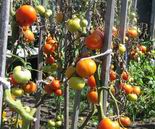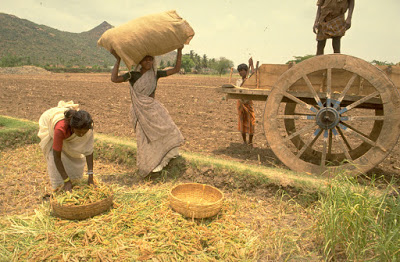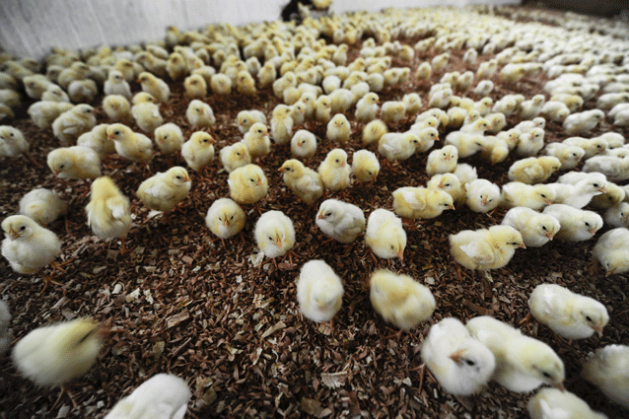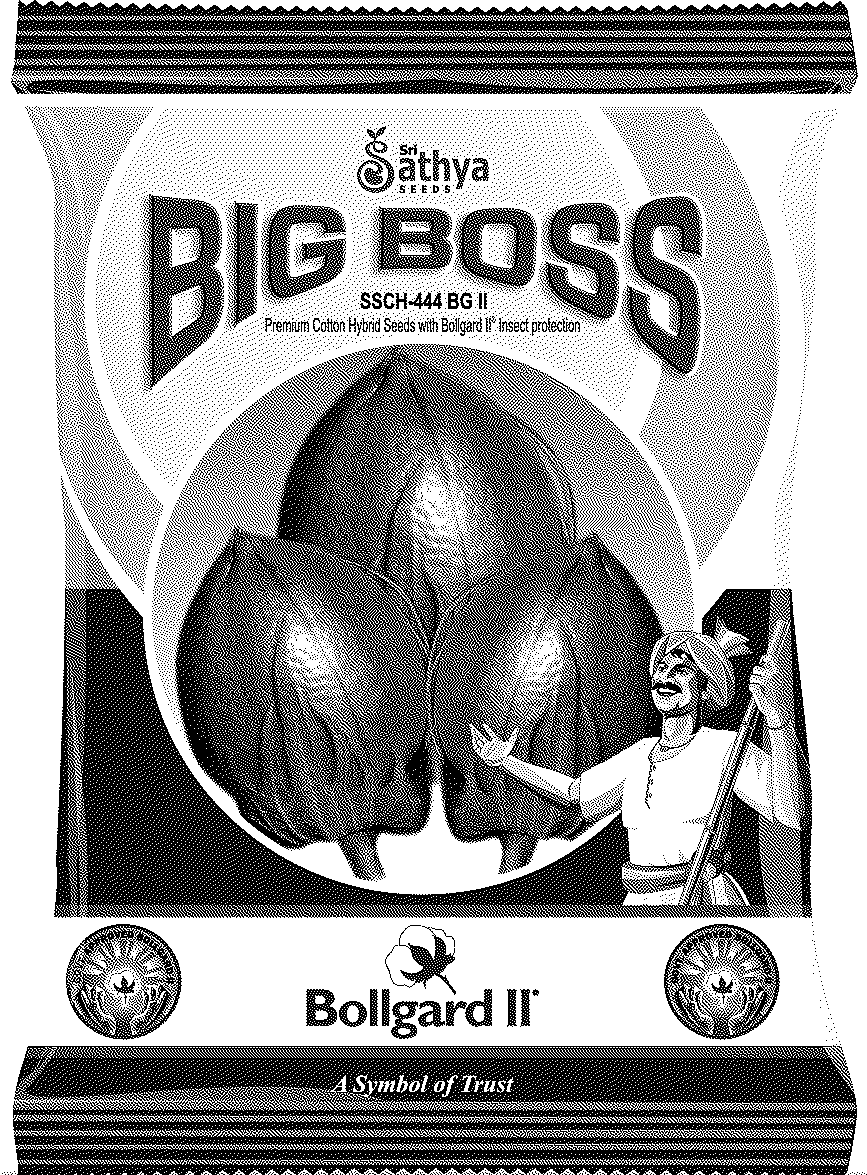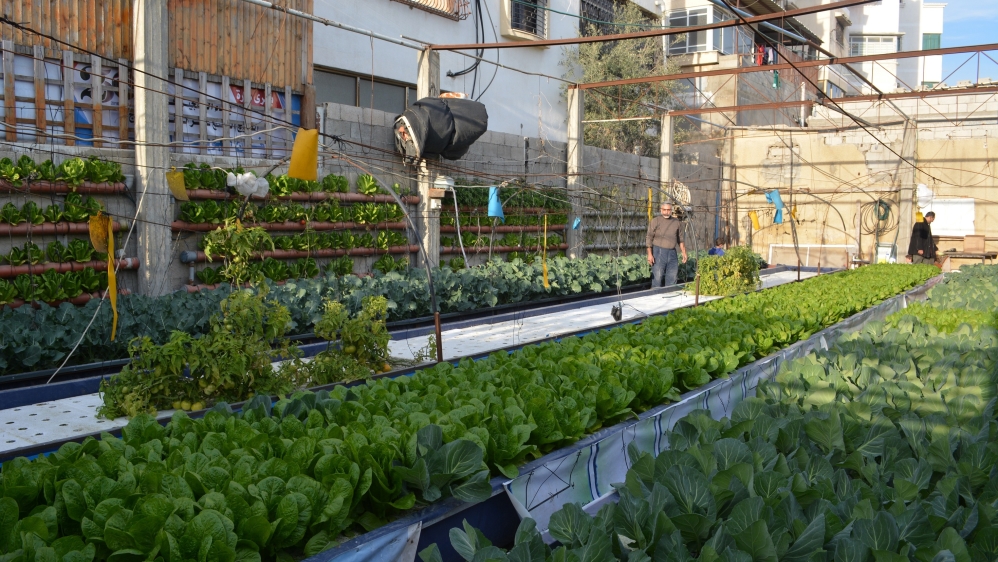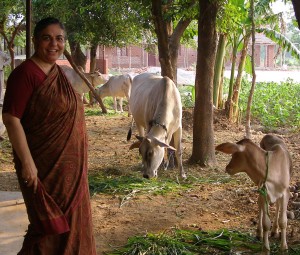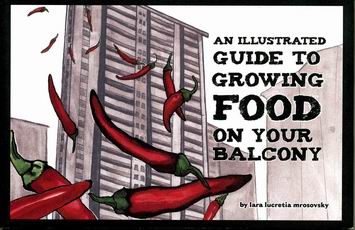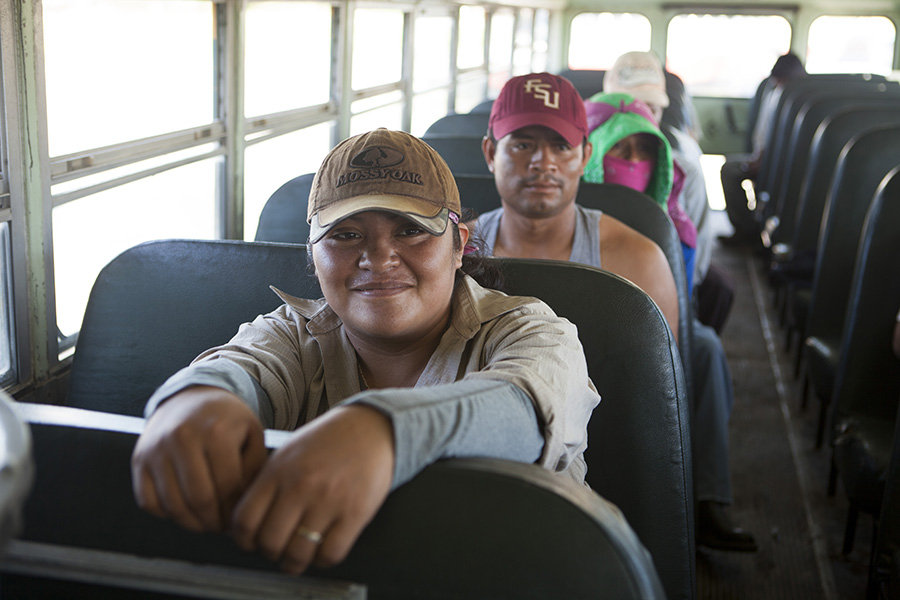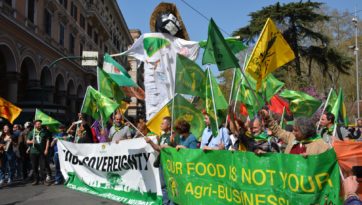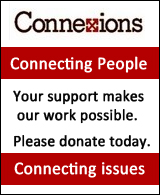Other Voices: The Connexions Newsletter
January 21, 2018
This Issue: What are we eating?
What are we eating? A simple question which opens up a labyrinth of devilishly complex issues about production and distribution, access to land, control of water, prices, health and safety, migrant labour, and much else.
For millions of people, the answer is brutally simple: not enough to survive. UNICEF estimates that 300 million children go to bed hungry each night, and that more than 8,000 children under the age of five die of malnutrition every day. The UN’s Food and Agriculture Organization (FAO) estimates that 12% of the world’s population is chronically malnourished.
How is this possible in a world where there is an enormous surplus of food, where farmers are paid not to grow food?
A short answer is that food production and distribution are driven by the need to make profits, rather than by human needs. The international system of corporate-dominated food production and sales that is misleadingly referred to as the “market” exists to maximize corporate profits. Everything follows from that. The ‘market’ responds to ‘demand’ (though that ‘demand’ is often artificially created by marketing campaigns). Bottom line: if people are hungry because they have no money to buy food, they don’t create a ‘demand’ for food, and the “market” doesn’t produce or allocate food for them.
This is not a new development. During the Irish famine of the 1840s, when one million people died of starvation, rich landowners were exporting food from Ireland. Why? Because foreign buyers could afford to pay, whereas the Irish peasants had no money with which to buy food. The Ethiopian famine of the 1980s was a similar story: the country was producing enough grain to feed everyone, and indeed continued to export food during the height of the famine.
In the past few decades, the increasing corporatization of the food system has been bringing about enormous changes.
In North America, traditional family farms are a threatened species. Large industrial farms expand, while smaller farms sell out to the big operations or, if they are close to cities, to real estate speculators and builders. Large or small, nearly all farmers are heavily in debt and trapped on a treadmill of borrowing against next year’s earnings to buy this year’s seeds, fertilizers, and pesticides, all controlled and sold by huge agribusiness corporations.
In Africa, land that has been farmed by local farmers for countless generations is being taken over by foreign mega-operations, many of them Chinese. In India, international agro-chemical monopolies have been pushing GMOs and new crop varieties, resulting in a series of rural disasters, whose consequences include a horrific wave of farmer suicides.
Another worry for anyone who consumes food – that is, everyone – is the safety of the foods that we consume. We are all guinea pigs in a massive, unprecedented, and uncontrolled experiment on human health and the earth’s ecosystems. What happens when our bodies, our lakes and rivers, our soil, and our air are saturated with an ever-increasing broth of chemicals, antibiotics, and genetically modified lifeforms?
If there is good news in all this, it is the fact that so many people are coming together to resist in various ways, large and small. This issue of Other Voices highlights a few. Many more stories and resources can be found via the Connexions website.
As always, we invite you to share this newsletter with your friends. You can forward this email, or send them the link to the Other Voices home page on the Connexions website at www.connexions.org/Media/CxNewsletter.htm.
If you'd like to subscribe and receive this newsletter by email every three weeks, please use this form.
Your feedback is appreciated - and so are donations to keep us doing what we're doing!

Topic of the Week
Food
The Food page in the Connexions Subject Index offers a varied menu of articles, books, videos, and groups. This is only the beginning: there are dozens of other pages related to food and agriculture in the subject index, including topics such as organic agriculture, local food, fisheries, nutrition, and many more. Browse the food page in the subject index here
This Week on Connexions.org
GMOs, Global Agribusiness and the Destruction of Choice
Localisation and traditional methods of food production, says Colin Todhunter, have given way to globalised supply chains dominated by transnational companies policies and actions which have resulted in the destruction of habitat and livelihoods and the imposition of corporate-controlled, chemical-intensive (monocrop) agriculture that weds farmers and regions to a wholly exploitative system of neoliberal globalization. Whether it involves the undermining or destruction of what were once largely self-sufficient agrarian economies in Africa or the devastating impacts of soy cultivation in Argentina or palm oil production in Indonesia, the role of transnational agribusiness has been devastating. Read more
Keywords: Industrial Agriculture - Genetically Modified Organisms (GMOs)
The Centrality of Seed: Building Agricultural Resilience Through Plant Breeding
Five of the global issues most frequently debated today are the decline of biodiversity in general and of agrobiodiversity in particular, climate change, hunger and malnutrition, poverty and water. Seed is central to all five issues. The way in which seed is produced has been arguably their major cause. But it can also be the solution to all these issues. Read more
Keywords: Plant Breeding - Seeds
Where the world’s appetite for fish matters most
Illegal over-fishing by Chinese and other foreign vessels is severely affecting the economy and food security of West African nations. As well as being a vital source of food, West Africa's fertile fishing zones provide seven million Africans with jobs. Plundered unchecked for decades, its dangerously exhausted stocks face new pressures. Read more
Keywords: Fishing - Overfishing
Resistance to Antibiotics: The Good, the Bad and the Ugly
The growing resistance to antibiotics and other antimicrobials due to their overuse and misuse both in humans and animals has become an alarming global threat to public health, food safety and security, causing the deaths of 700,000 people each year. The FAO warns that in the coming decades, the use of antimicrobials in animal production and health will likely rise as a result of economic expansion, a growing global population, and higher demand for animal-sourced foods. Indeed, their use in livestock is expected to double within 20 years. Read more
Keywords: Antibiotic Resistance - Ecosystems/Health of
Two Decades of Monsanto's Illegal Actions, Frauds and Crimes in India
Over the two decades since Monsanto entered India, it has violated laws, deceived Indian farmers by making unscientific and fraudulent claims, extracted super profits through illegal royalty collection by violating India’s patent and intellectual property laws, pushed farmers into debt, and, as a consequence of the debt trap, to suicide. Read more
Keywords: Cotton - Genetically Modified Organisms (GMOs)
One Palestinian Man’s Mission to Make Urban Agriculture More Sustainable
Said Salim Abu Naser, a proponent of sustainable agriculture living and working in Gaza City, Palestine, along the Mediterranean Coast, has created a 200-square-meter (2,000-square-foot) micro-farm using a hydroponic system and homemade organic pest-control solutions consisting of garlic, pepper, soap and more. Watch the video here
Keywords: Palestine - Urban Agriculture
Website of the Week
VandanaShiva.com
The website of Dr. Vandana Shiva, documenting her work, in collaboration with local communities, in protecting the diversity and integrity of living resources – especially native seed – and promoting organic farming and fair trade. Find it here
Keywords: Biodiversity - Organic Agriculture/Food
Book of the Week
An Illustrated Guide to Growing Food on Your Balcony
By Lara Lucretia Mrosovsky
This is a booklet for people in the city who grow or want to grow plants in container. The information is meant to be basic enough for beginners and informative enough to be a handy reference for even an experienced gardener.
The author writes: “Growing your own food is its own reward. But this booklet, and the gardening work and teaching that I do, is motivated by a bigger vision. To me, urban gardens matter because I see them as a small piece of a larger puzzle – the complicated, many-layered puzzle of building alternatives to the globalized, industrial food system.” Read more
Keywords: Gardens/Gardening - Urban Agriculture
Video of the Week
Only one bear in a hundred bites, but they don't come in order
By Bob Bossin
This video by Bob Bossin highlights the risk of a catastrophic fire at the terminus of the proposed Kinder Morgan pipeline. The proposed pipeline, which Elizabeth May has characterized as “total stupidity,” would carry tar-sands oil from Northern Alberta to the Port of Vancouver. Watch it here
Keywords: Oil Spills - Oil & Gas/Environmental Issues
Organizing
Tomato pickers win higher pay. Can other workers use their strategy
Tactics like protests outside Wendy's, repeated in cities across the country, have helped make the Coalition of Immokalee Workers one of the most successful worker organizations in the country. By applying pressure to corporations at the top of the supply chain, the big retailers and fast-food chains that buy tomatoes, the CIW has helped tens of thousands of mostly Hispanic immigrant workers who pick the bulk of the nation’s winter tomato crop. Read more
Keywords: Farmworkers - Seasonal Labour
People's History
A common treasury for all: Gerrard Winstanley’s vision of utopia
Gerrard Winstanley was the ideological force behind the Diggers, a left-wing movement during the English Revolution. The Diggers believed in the abolition of private property and said that the earth should be a common treasury for all. Read more
Keywords: Common Property - Levellers
From the Archives
Via Campesina Declaration on Food Sovereignty 1996
"Food sovereignty" is a term coined by members of Via Campesina in 1996. In their 1996 declaration, Via Campesina asserted that the people who produce, distribute, and consume food should control the mechanisms and policies of food production and distribution, rather than the corporations and market institutions they believe have come to dominate the global food system. The declaration asserts that food is a basic human right, and that this right can only be realized in a system where food sovereignty is guaranteed. Read more
Keywords: Food Sovereignty - Land Rights
Seeds of Fire
January 22, 1905
Bloody Sunday in Russia
A massacre of workers by the Czar’s soldiers leads to the outbreak of revolution. A peaceful demonstration of St. Petersburg workers, led by a priest, assembles at the Winter Palace, hoping to present a petition to Czar Nicholas II. They are singing hymns, dressed in their best clothes, and carrying portraits of the Czar to show their faith that the ‘Little Father’ will help them. Their trust in the Czar is repaid with bullets: without warning, troops fire into the terrified crowd; more than a thousand are killed. The next day, 125,000 workers go on strike protesting the massacre: the strikes spread like wildfire, and suddenly revolution is on the agenda. For the next two months, Russia is engulfed in a revolutionary upheaval that threatens to overthrow the regime, but ultimately falls short.
January 25 - 30, 2001
The first World Social Forum
The first World Social Forum brings together 12,000 people in Porto Alegre, Brazil. It defines itself as “an opened space – plural, diverse, non-governmental and non-partisan – that stimulates the decentralized debate, reflection, proposals building, experiences exchange and alliances among movements and organizations engaged in concrete actions towards a more solidarity based, democratic and fair world....a permanent space and process to build alternatives to neoliberalism.”
January 25, 2011
Revolt in Egypt
A popular uprising begins in Egypt, with tens of thousands of protesters gathering in cities across the country, including in Cairo’s Tahrir Square, to protest against the repressive regime of Hosni Mubarak. The continuing protests force Mubarak to resign on February 11.
January 27, 1945
Liberation of Auschwitz
The Nazi concentration camps Auschwitz, Birkenau, and Monowitz are liberated by the Soviet Red Army.
January 30, 1649
Head of state beheaded
King Charles I of England is beheaded after being convicted of treason. The monarchy is then abolished, but restored in 1660.
Connexions Calendar
January 25, 2018
Secure Web Browsing and Anonymity with Tor Browser
Celebrate Data Privacy Day with a hands-on workshop with Toronto-based developer for the Tor Project, Sukhbir Singh. Mr Singh has been a software developer in the applications and community team of the Tor Project since 2012.
Come learn just how easy it is to use the internet privately! Whether you've never heard of Tor, or have only heard bad things about it, or are a long-time user of the best privacy tool out there, come out and learn from a seasoned Tor developer in a hassle-free, community setting.
Bring your device(s) for a hands-on experience! This event is part of TPL's Digital Privacy project.
January 27, 2018
Montreal: Rally Against NAFTA
Join the Montreal chapter of the Council of Canadians on January 27 at noon to rally against NAFTA during the negotiations.
January 31, 2018
Community Organizing - how to connect with others and gain support for your cause
In person outreach and engaging the public in a 'one on one' or public speaking fashion can easily feel overwhelming, even for the most extroverted of us. So how can you ease the stress, anxiety, and initial barriers to actually getting people to talk to you? Come learn some tips, tricks, and best practices to getting cold glances to melt and strangers to hear you out.
In this workshop we will be covering some of the basic and most common scenarios and how to best navigate each one.
February 1, 2018
The Crises in the Gulf and Palestine
The recent decision by President Donald Trump to relocate the US embassy to Jerusalem amidst international condemnation has made the US the only country in the world to officially recognize Israel’s illegal, unilateral annexation of that city. At the same time, intensifying bloody repression in the Arab Gulf has included a horrific US-Saudi assault on Yemen, the encirclement of Qatar and Iran, and the consolidation of an absolutist regime in Saudi Arabia headed by Prince Salman. As a result, the need to assess the strategic dilemmas facing international solidarity activists, including the movement for Boycott, Divestment, and Sanctions of Israel, has become even more pressing.
February 9 – 11, 2018
2018 Social and Environmental Justice Symposium
OPIRG Guelph’s Social and Environmental Justice Symposium is a convergence of academic and community research, activism, and art focused on social and environmental justice issues. We are aiming to make research more accessible to all and to foster deeper relationships and idea sharing between academics and community activism..
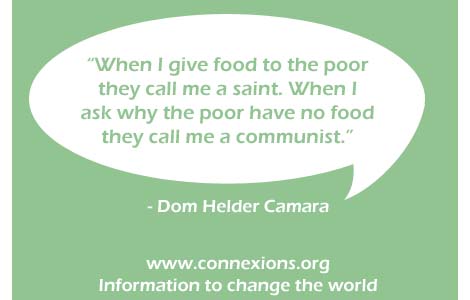
Your support is needed to keep Connexions going
All of the work of the Connexions project is done by volunteers, but our expenses include rent, phone and computer costs and technical support, as well as expenses related to our ongoing project of converting printed archival materials into digital formats. You can make a one time or regular monthly contribution through the donate page on the Connexions website.
Bequests
Many of us have made working for social justice a lifetime commitment. If you are thinking about leaving a legacy for social justice that will live on, you might want to consider leaving a bequest to Connexions in your will. If you'd like to discuss this option, please contact us or see the Bequest page.

